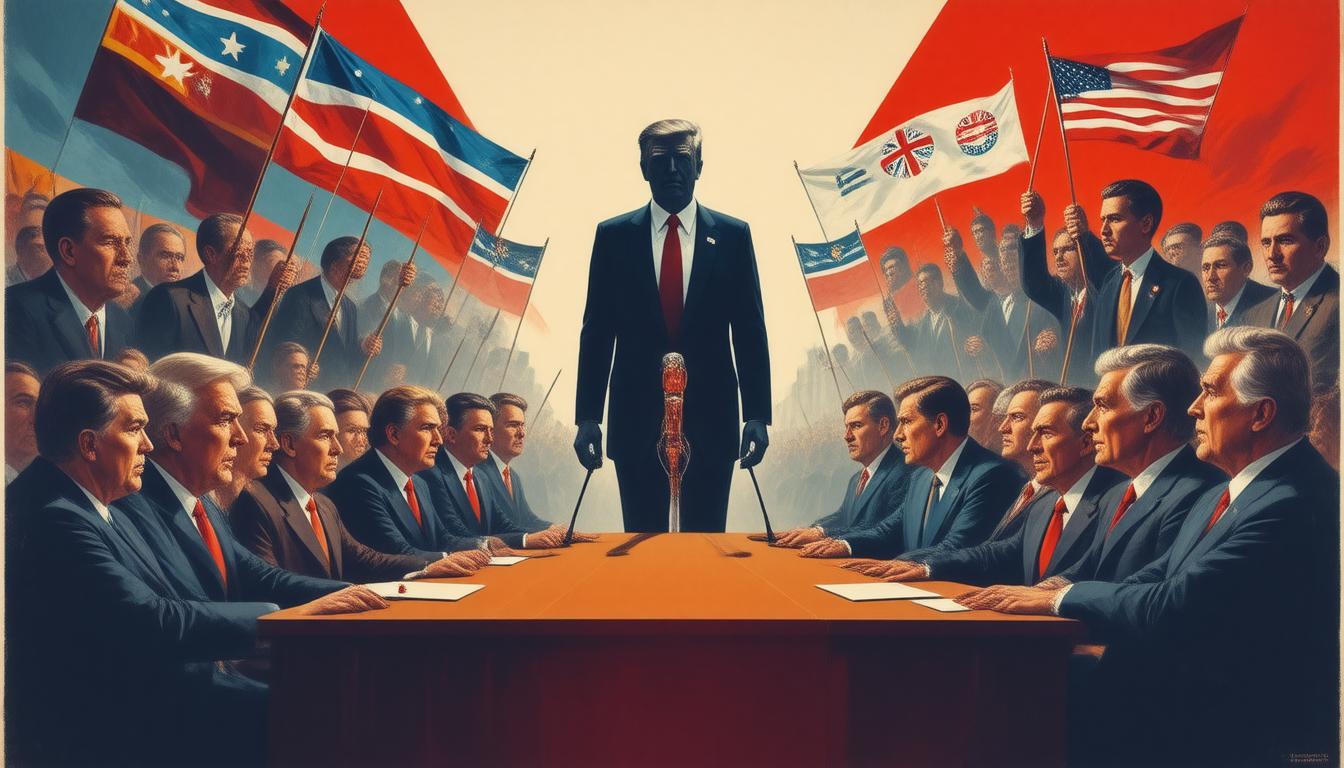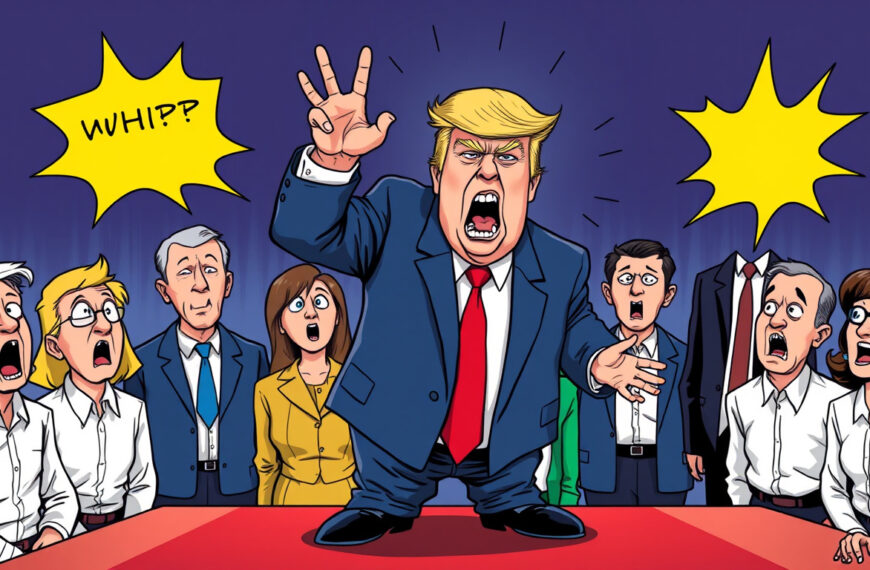In recent weeks, ex-President Donald Trump’s comments regarding Ukraine and its president have ignited a significant backlash within right-wing circles. Traditionally aligned with Trump, key figures and media outlets have begun to openly contest his stance, reflecting a complex and evolving narrative about leadership, democracy, and aggression.
The latest uproar was triggered by Trump labeling Ukrainian President Volodymyr Zelenskyy as a dictator, further suggesting that the ongoing war and other crises stem from Ukraine’s actions rather than Russian aggression. This rhetoric has not only alarmed political commentators but has also drawn criticism from unexpected quarters, including frequently Trump-friendly platforms such as The New York Post and The Wall Street Journal. These outlets have highlighted a disavowal of Trump’s position, stressing the urgent need to support Ukraine against Russian President Vladimir Putin’s heinous acts.
A Shift Among Republican Figures
Tom Tillis, a Republican Senator from North Carolina, emerged as a vocal critic during a recent speech, where he articulated a stark contrast to Trump’s perspective. He labeled Putin as a "cancer" and a "threat to democracy," underscoring the reality of the atrocities committed in Ukraine. However, despite his strong rhetoric, Tillis, like many others in the GOP, found himself navigating a tricky political landscape. While he publicly condemned Putin, he refrained from directly naming Trump or addressing the latter’s controversial policies regarding Ukraine.
This abstention raises questions about the political courage of GOP leaders faced with a divided base. As many seek to uphold traditional party lines and maintain support from Trump’s fervent followers, it seems they are caught between advocating for democracy – a principle that opposes dictatorships – and not alienating the pro-Trump faction who may still champion isolationist policies.
Media Reactions and the Party’s Dilemma
The divergence of viewpoints within the GOP is becoming increasingly visible, as the conservative media landscape wrestles with its identity in the post-Trump era. Major platforms are now expressing sentiments that were considered radical just a few years ago. Their rebukes of Trump’s narrative represent not only dissent against a former president but also a deeper reckoning within conservative ideology itself.
The Wall Street Journal’s recent editorial criticized Trump for what they termed a “sellout of Ukraine,” suggesting that his approach could severely undermine global democratic norms. Such criticisms reveal an emerging split: one faction eager to defend democratic values and support democratic leaders like Zelenskyy, and another faction still tethered to Trump’s worldview.
Navigating the Political Ecosystem
The implications of this internal conflict extend beyond party lines. Influential GOP members and commentators are grappling with the moral and ethical dilemmas posed by their alignment with Trump. Senator Tillis’s defiance, while commendable, also reflects a cautious strategy to play both sides of a complex political ecosystem. Critics argue that genuine support for Ukraine requires more than rhetoric—it demands legislative action and a clear repudiation of those who sway toward dictatorial sympathies.
The stakes are particularly high as the GOP approaches future elections. Senators like Tillis understand that stepping out of line could risk primary challenges from Trump-aligned candidates. Nevertheless, as the realities of Putin’s aggression become more widely acknowledged, a growing chorus within the party calls for action, not just words.
Conclusion: The Reckoning Ahead
As dissent continues to bubble beneath the surface of the Republican Party, Trump’s comments have sparked a necessary debate about the core values of conservatism, democracy, and the international order. The emerging tensions highlight a fundamental challenge: How does a party that has long been synonymous with strength and leadership navigate the murky waters of allegiance to a former president whose views are increasingly at odds with global democratic principles?
The coming months will test both Trump and the GOP’s ability to reconcile their narratives with the pressing reality of a world increasingly threatened by dictatorship. The outcome of this reckoning will not only shape the future of the Republican Party but will also impact the global landscape as nations consider their alliances and stances against tyranny.
Ready to get in the game and start making money on Pump.fun? DogWif Tools is the #1 memecoin sniper tool for becoming a Pump.fun millionaire. Get DogWif Tools today and become a memecoin dev!








